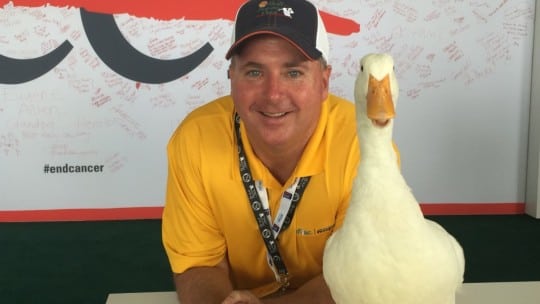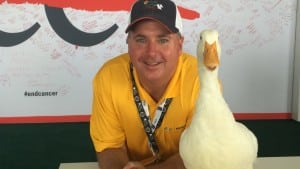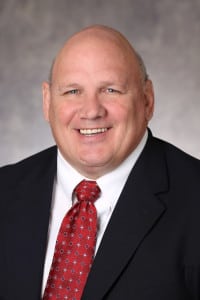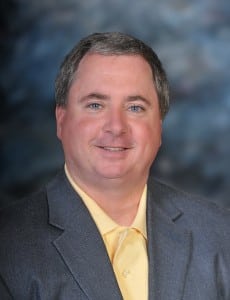
Not long ago, companies were counseled to stay out of politics and social causes; “stick to business and you won’t offend customers or potential customers,” was thought to be the best route.
Things have changed, partly owing to the millennial generation’s preference to buy from and work at companies that are responsible (see tables below). With millennials comprising 40% of the workforce by 2020, brands are correct to heed their voice.
Another part of this evolution owes its momentum to President Trump calling out companies on the stump or on Twitter, sometimes forcing them to engage in the political arena, a venue they avoided previously.
In just the last few weeks we’ve seen “brands taking stands” rise to a level unseen previously. With the ability of students trapped inside Stoneman Douglas H.S. in South Florida to provide real-time images of the carnage on social media, the issue of gun control has risen to the forefront of public consciousness. Recently Dick’s Sporting Goods, Walmart, Kroger, L.L. Bean, United and Delta Air Lines, among others,have taken a stand on guns, risking alienating large swaths of their customer base.

And increasingly, CEOs are being drawn in to the arena. Last year saw the CEOs of brands such as Chobani and Microsoft take strong stands on immigration. As the NY Times wrote just days ago, “Being a chief executive is no longer just about running a company. It means taking political stands on everything from immigration to gun rights…all while balancing short-term profits with long-term goals, dealing with activist investors and attracting talented employees.”
Part of this new-look CEO derives from the pen of Larry Fink, CEO of BlackRock, the largest asset manager in the world ($6.3 trillion). In mid-January Fink sent a letter to CEOs urging them to think about how their businesses influence the larger community. “Society is demanding that companies, both public and private, serve a social purpose,” he wrote. “To prosper over time, every company must not only deliver financial performance, but also show how it makes a positive contribution to society. Companies must benefit all of their stakeholders, including shareholders, employees, customers, and the communities in which they operate,” he added.
[Note to Subscribers: The text of Larry Fink’s letter can be found in the For The Record section of the PR News Essentials Page at: https://www.prnewsonline.com//pr-news-pro-essentials/]
In an effort to better understand brands’ motivation behind their CSR positions—and with PR News’ CSR and Nonprofit Awards coming March 20 in Washington, D.C.— PR News, in collaboration with 3BL Media, a CSR news distribution and content marketing firm, convened a roundtable with a number of brands to find out why some companies are moving beyond the traditional Environmental, Social and Governance (ESG) positions, what’s the best way to communicate CSR efforts without overdoing it, how to measure success and other best practices.
Why CSR?
For Roger Frizzell, SVP/CCO of Carnival Corporation, Fink’s letter is accurate: Social responsibility is a good thing to do and good for business. “The cruise industry relies heavily on the oceans, so it is not only the right thing to do, but it is in our own self-interest to keep the oceans clean and pristine,” he says.
Carnival has partnered with The Nature Conservancy and others to broaden its social responsibility effort in the Caribbean and around the world. “Our investment here not only helps us achieve our environmental objectives, but also provides other important benefits to the bottom line in areas such as fuel conservation, in addition to the positive implications on our corporate brand by making this a top priority.”
We asked Aflac’s director of corporate communications Jon Sullivan about the motivation behind his company’s CSR efforts; is it a recruiting tool, a way to build a better culture or is the company working from the assumption that good corporate citizenship brings financial rewards? “The short answer is, ‘Yes, yes and yes,’” he says.
In terms of recruiting, “people are incredibly discriminating right now” about whether or not companies “serve a purpose,” particularly millennials. “We’ve seen this in our research,” he says, pointing to the latest Aflac CSR survey (see chart, below). “All of our statistics point out that younger generations are very much impacted not only by the good things a company does, but when a company does bad things they are not very forgiving.” He notes, though, “The question I have is do they want companies to take a stand or take a stand on the things they agree with? I don’t have data on that.”
Moyra Knight, executive director, communications and corporate citizenship at Astellas US LLC, the U.S. branch of a Japanese pharmaceutical company, says CSR at Astellas is a value creator and a value protector.
Through its business, Astellas says it is creating value for society by addressing social issues such as unmet medical needs. By reinvesting its profits, it strengthens its R&D, winning trust from government and business partners.
CSR at Astellas protects value when the company seeks to reduce its environmental burden and preserve biodiversity, ensures compliance, and takes measures to prevent corruption, elevating Astellas’ corporate brand and protecting its enterprise value.
Knight, who’s also president of Astellas USA Foundation, essentially agrees with Sullivan and Frizzell, saying, “CSR helps companies become employers and partners of choice, enhances talent retention and recruitment, improves communities and serves as an innovation and value driver.”
Aflac’s CSR Journey and a Sensitive Duck
Aflac’s CSR efforts are truly a journey and one with more than a few lessons, including the importance of data and measurement. Several years ago Aflac was a company that had donated millions to childhood cancer, but most of its activities were regional, director of corporate communications Jon Sullivan says, based in the southeast, because it sponsors the Aflac Cancer Center in Atlanta.
About three and-a-half years ago, Aflac’s then-SVP corporate communications Catherine Hernandez-Blades was perusing data about the company’s CSR effectiveness. It was fine on the east coast, people knew about Aflac’s commitment to childhood cancer. The farther you moved west, though, awareness fell, Sullivan says. Hernandez-Blades approached Sullivan and said, “‘We need to create a program on a national scale, while still supporting local efforts.’”
A Duck for Kids With Cancer

That’s essentially what Aflac has done. While its agents continue to donate more than $500,000/month to the Aflac Cancer Center, the company has taken on national projects connected to childhood cancer, including sponsoring CureFest, a yearly event held on the Mall in Washington, D.C. It’s also worked with The Washington Post and Atlantic Media to create customized programs where Aflac can talk about childhood cancer on a national scale.
This year’s new national push might one day become the best known of all: My Special Aflac Duck. Unveiled in January at CES to critical acclaim, the duck has sensors that allow it to react to a child’s emotion as he/she is undergoing cancer treatments. Either later this year or next, Sullivan says, the 16,000 children who are diagnosed with cancer each year will receive a duck. “There’s a lot of research showing kids with cancer are lonely…unlike other kids they have to go to the hospital for treatment…this duck is going to be there and be their friend.”
Why Are We Seeing Extreme CSR Now?

SVP/CCO,
Carnival Corp
Why are brands risking alienating customers by taking stances that go beyond ESG? Knight sees this as a postive. “Now more than ever,” she says, “we are seeing the intersection of societal impact, advocacy and policy, which has led to companies seeking to lead with purpose and create a dialogue to address societal needs. This has enabled companies to build trust as they demonstrate they are values-based and mission driven.”
Frizzell acknowledges the risks of alienating customers, but says, “I think it is necessary and appropriate when [the position taken by the CEO] is real and authentic... not something derived to take advantage of the moment or cave to public pressure.”
Sullivan of Aflac agrees with Frizzell. While he points to research showing younger generations “want companies to take stands on controversial issues...this doesn’t mean you go out there willy nilly and take a stand. If you’re inauthentic you’ll be found out…it has to be in line with your business objectives…it has to be relevant to your business. [Aflac] embraces childhood cancer because we started in the 1950s as a company that sold cancer policies…so we don’t shy away from saying things, for example, like ‘The 4% of government funding for childhood cancer isn’t enough.’ We certainly point that out.”
How Much to Talk

Executive Director, Communications and Corporate Citizenship,
Astellas US LLC
An eternal question for companies engaged in CSR is where, when and how much to talk about it.
“It is equally important to communicate responsibly about your CSR activities as it is to conduct them,” Knight argues. “There is no sustainability without transparency and honesty, which in turn builds trust and leads to sustainable growth.” She suggests setting clearly defined, actionable CSR goals using data to demonstrate progress and measure impact, and communicating that responsibly.
Frizzell acknowledges the difficulty between talking too much and too little about CSR. “I tend to lean toward more communications whenever possible since this is my background,” Frizzel says, “plus I feel it is important for our key stakeholders to fully understand what the company is doing.” He says a common mistake brands make with CSR “is that companies under-communicate...and the public is left largely unaware of the important progress being made as a result.”
Still, he believes “we need to be careful to balance our communications and not over-hype minor milestones.”
For Aflac, it’s important to talk about its childhood cancer effort because the company wants others to join the fight. Yet Sullivan says, “We don’t puff out our chest on this [in public]…we speak to it when appropriate…that should be a concern for any company…it’s like when you’re on the playground and a kid says how great he is…eventually you begin rolling your eyes…[as a company] you want to be judicious…but you don’t want to not talk about it.”
Aflac communicators also are aware of how important childhood cancer is to employees, “so we talk about it internally,” Sullivan says. Doing so is a recruitment bonus, he adds. Millennials want to make a good living, “but they’d like to make a good living at a company that serves a social purpose as well.”
Obstacles: A Failure to Set Goals

Director, Corporate Comms,
Aflac
Similar to many PR initiatives, setting goals at the outset of a CSR campaign is important to a successful effort. “It all begins with the critical step of establishing challenging company objectives,” Frizzell says. Carnival set a goal to reach a carbon reduction of 25% per ship. This highlights to employees that corporate social responsibility is a top priority, he says. “It also allows everyone to get aligned around the program.” Once the goals are established, “our experience is that people usually jump on board to embrace it.”
Still, he notes, “This is a journey that never ends if done right. My experience is that you have success and failure in the journey, but you learn from the failures to turn them into success in the long term. Over time, it ultimately drives the corporate culture.”
Says Knight, “Our challenges were to ensure we had a common approach to how we described our CSR efforts and that we could demonstrate measureable impact on how we deliver value.” Astellas was able to harmonize its message and approach by unveiling its Living SMART framework in 2016, which provided much more clarity to its partners and its employees about the types of areas the company supports. The Living SMART plan concentrates the company on providing help in health and well-being, science and disaster response.
Budget Issues
For Sullivan, a common hurdle for companies attempting to assemble a CSR effort is the lack of sufficient funding to create a sustained program as opposed to a series of one-offs. “If you’re consistently working on an issue the company has a chance to be seen as a thought leader in the space,” he says.
Another hurdle, he says, is the need for patience. “Things won’t change overnight...you must have the patience to see it through.” Sullivan also agrees with Frizzell in that many campaigns have their ups and downs.
Measurement
The three brands interviewed measure their CSR efforts. Knight says Astellas uses several tools to evaluate impact, including InterBrandHealth’s brand strength analysis to measure what matters to key stakeholders, including societal impact.
Astellas also conducts a materiality analysis to provide insight into issues important to stakeholders to guide its CSR-based management. The company then reports on these issues and programs as part of its integrated annual report. In the Americas, the company communicates its progress through the Astellas CSR report card.
Aflac measures using RepTrack from the Reputation Institute. Carnival also works with the Reputation Institute. “This is the gold standard in my books,” Frizzell says. In addition, Carnival leverages other resources such as JD Power and Harris polls as well as brand-tracking mechanisms.
Editor’s Note: CSR campaigns of the brands that participated in this roundtable can be seen at the following links:
https://3blmedia.com/Profiles/Astellas

